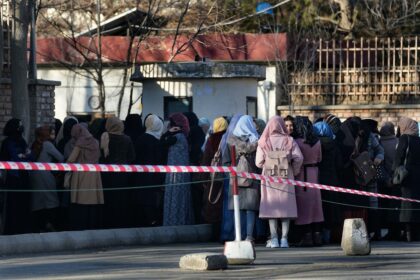RASC News Agency: As sweltering summer heat intensifies across Afghanistan’s capital, residents of Kabul are facing unprecedented electricity shortages that have disrupted every facet of urban life. With power available for only a few erratic hours each day, citizens are struggling to cook, preserve food, conduct business, and access online education or health services transforming daily routines into a mounting humanitarian burden. Residents across multiple districts report that blackouts, which now stretch for most of the day and night, have left homes and businesses in paralysis. For many, these power outages are not merely inconvenient but represent yet another sign of systemic collapse under Taliban rule.
“We barely get electricity for two or three hours a day,” said Sanaullah, a Kabul-based shopkeeper (name changed). “My livelihood depends on refrigeration and lighting. If this continues, I’ll have to close my shop and send my children back to the village. What kind of government ignores something so basic?” The Taliban-controlled utility authority has issued generic statements promising “improvements,” but residents say these promises are as hollow as they are familiar. In the absence of a coherent national energy strategy, Afghanistan remains perilously dependent on imported electricity from neighboring countries Uzbekistan, Turkmenistan, Tajikistan, and Iran leaving its citizens vulnerable to foreign disruptions and internal mismanagement.
Experts argue that the deepening power crisis reflects more than technical shortcomings; it highlights the Taliban’s institutional incompetence, lack of planning, and chronic neglect of civilian needs. Under successive international governments, modest efforts were made to diversify energy sources and expand domestic infrastructure. But since the Taliban’s return to power in August 2021, those plans have either stalled or vanished entirely. “Afghanistan’s power sector has collapsed into a black hole of corruption, opacity, and ineptitude,” noted Farzana Qadiri, an energy policy analyst (name changed for security). “While the regime celebrates symbolic victories, the country is literally sitting in the dark.”
The consequences are particularly dire for Kabul’s small businesses. Welders, barbers, bakers, tailors, and others reliant on consistent electricity are now either cutting hours or shutting down entirely. Women-led businesses, already marginalized by Taliban restrictions, are among the hardest hit. Even education has not been spared. With most girls’ secondary schools still banned under Taliban rule, many had turned to online learning. Now, without electricity, that lifeline too is being severed. In rural areas, solar energy offers a limited reprieve, but in urban centers like Kabul, the cost of installing solar panels remains out of reach for most families. Meanwhile, the regime continues to issue vague, propagandistic statements about self-sufficiency and progress claims that stand in stark contrast to the grim realities on the ground.
While the Taliban claim that security has been “restored,” the collapse of essential public services such as electricity tells a different story: one of decay, abandonment, and growing public resentment. Unless meaningful investment and transparency return to the power sector, and unless international aid is directed through independent, accountable channels rather than regime-controlled entities, Kabul’s descent into darkness will continue both metaphorically and literally.






